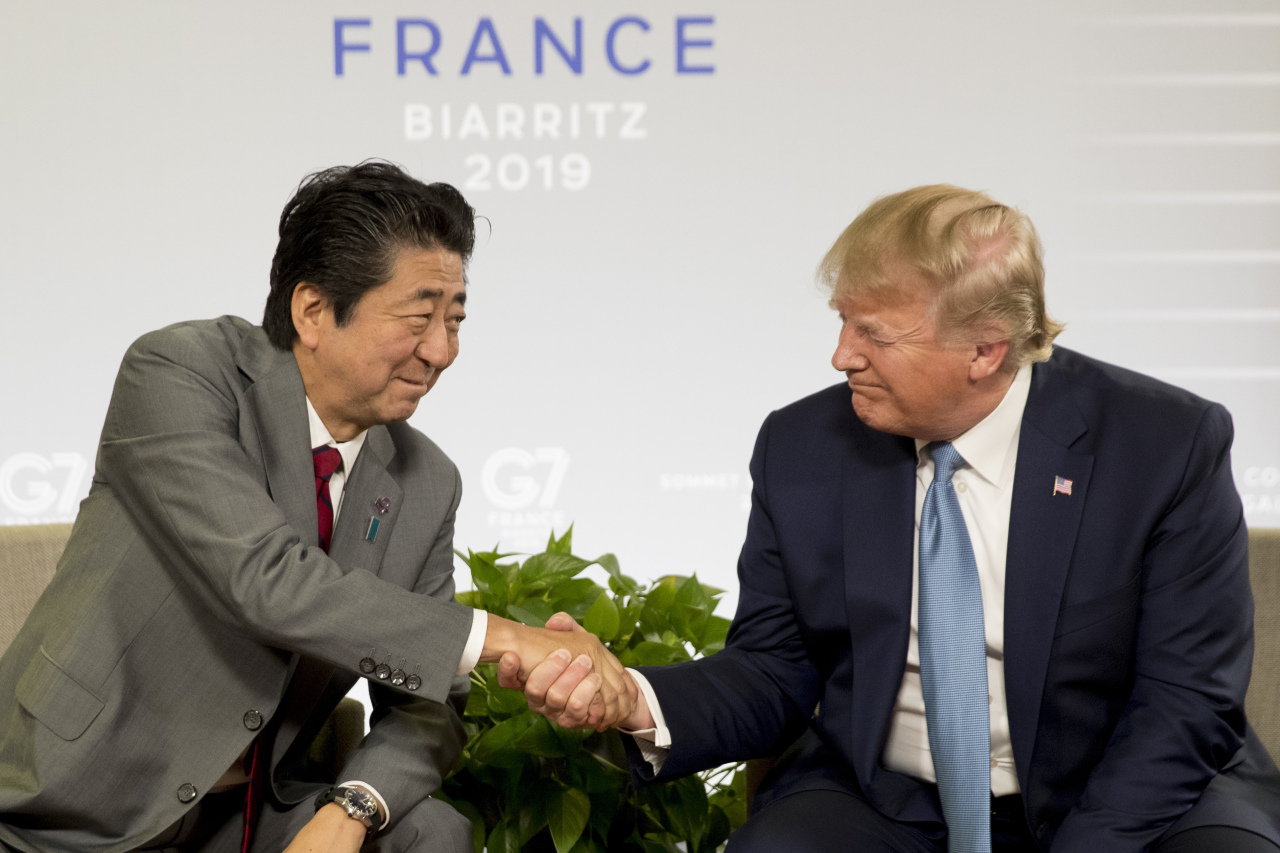Trade concerns push S. Korea’s consumer sentiment to 31-month low
By Jung Min-kyungPublished : Aug. 27, 2019 - 15:38
South Korea’s consumer sentiment came to 92.5 in August, the lowest indicator readout since January 2017, data released by the Bank of Korea showed Tuesday as global trade issues continued to weigh on the economy.
According to the central bank, the composite consumer sentiment index dipped 3.4 points on-month to well below the baseline of 100, which means consumers are decidedly pessimistic compared with average readings between 2003 and 2018.
The BOK cited a number of risks to explain the data: Japan’s announcement last month that it would impose export restrictions on key semiconductor and display materials, the ongoing US-China trade war, the nation’s declining outbound shipments, and the lackluster stock market and currency rate.
According to the central bank, the composite consumer sentiment index dipped 3.4 points on-month to well below the baseline of 100, which means consumers are decidedly pessimistic compared with average readings between 2003 and 2018.
The BOK cited a number of risks to explain the data: Japan’s announcement last month that it would impose export restrictions on key semiconductor and display materials, the ongoing US-China trade war, the nation’s declining outbound shipments, and the lackluster stock market and currency rate.

Global financial markets have been volatile as a result of the fickle and unpredictable nature of the US-China trade war. US President Donald Trump on Monday shifted his tone on the trade war with China, saying Beijing is willing to reach a deal with Washington.
The Korean won breached the psychologically important level of 1,200 against the US dollar on Aug. 5, while the benchmark Kospi hovered just above the 1,900 level as of Tuesday.
Consumers’ average inflation expectations for the next 12 months stood at 2 percent in August, marking the lowest level since authorities first began compiling data in February 2002.
All indexes saw losses in August, data showed, including one that shows how consumers perceive their economic situation at the moment. It stood at 89 points, 3 points down on-month and its lowest since March 2009, when the pessimistic mood of the 2008 global financial crisis lingered.
Korea has announced a series of contingency plans to minimize the impact of Japan’s export curbs.
The chairman of the policymaking Financial Services Commission, Choi Jong-ku, said the government plans to expand the scope of its financial support for firms hit by Tokyo’s export restrictions if it is deemed necessary.
“We are currently focusing on financial support for firms that received more direct damage from Japan’s export restrictions,” Choi said at a meeting with senior officials of Korea’s financial institutions.
“Though we have yet to find a firm with serious damage ... we will continue cooperating with relevant agencies to expand and improve the scope of the financial support, if needed, by continuing to monitor the situation,” he added.
Choi’s remarks came a day before Tokyo was scheduled to officially remove Korea from its list of trusted trade partners.
According to Choi, the government has so far provided financial support worth 265.4 billion won ($217.8 million) in the form of fresh capital and by extending loan maturity.
On the increased market volatility recently detected in the nation’s financial market, Choi asked institutions and institutional investors alike to play a role in subduing the level of volatility through a “cautious and calm response.”
Meanwhile, Deputy Prime Minister and Finance Minister Hong Nam-ki presided over a meeting with the ministers of foreign affairs, SMEs, ICT and trade to discuss further steps in supporting core parts and materials industries by reinforcing research and development capabilities.
By Jung Min-kyung (mkjung@heraldcorp.com)



![[AtoZ into Korean mind] Humor in Korea: Navigating the line between what's funny and not](http://res.heraldm.com/phpwas/restmb_idxmake.php?idx=644&simg=/content/image/2024/04/22/20240422050642_0.jpg&u=)
![[Exclusive] Korean military set to ban iPhones over 'security' concerns](http://res.heraldm.com/phpwas/restmb_idxmake.php?idx=644&simg=/content/image/2024/04/23/20240423050599_0.jpg&u=20240423183955)



![[Graphic News] 77% of young Koreans still financially dependent](http://res.heraldm.com/phpwas/restmb_idxmake.php?idx=644&simg=/content/image/2024/04/22/20240422050762_0.gif&u=)
![[Herald Interview] Why Toss invited hackers to penetrate its system](http://res.heraldm.com/phpwas/restmb_idxmake.php?idx=644&simg=/content/image/2024/04/22/20240422050569_0.jpg&u=20240422150649)






![[Exclusive] Korean military to ban iPhones over security issues](http://res.heraldm.com/phpwas/restmb_idxmake.php?idx=652&simg=/content/image/2024/04/23/20240423050599_0.jpg&u=20240423183955)



![[Today’s K-pop] Ateez confirms US tour details](http://res.heraldm.com/phpwas/restmb_idxmake.php?idx=642&simg=/content/image/2024/04/23/20240423050700_0.jpg&u=)